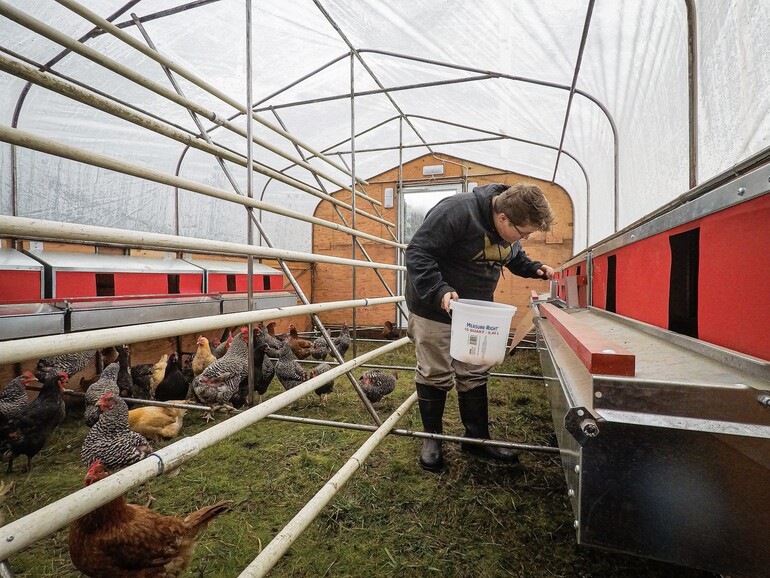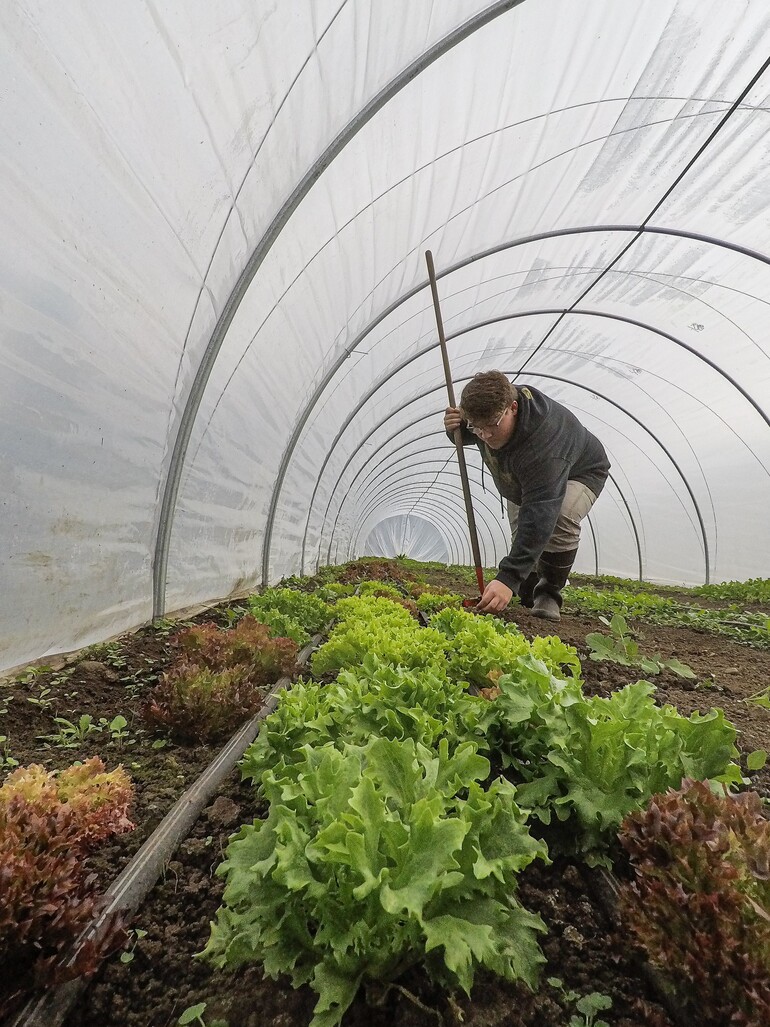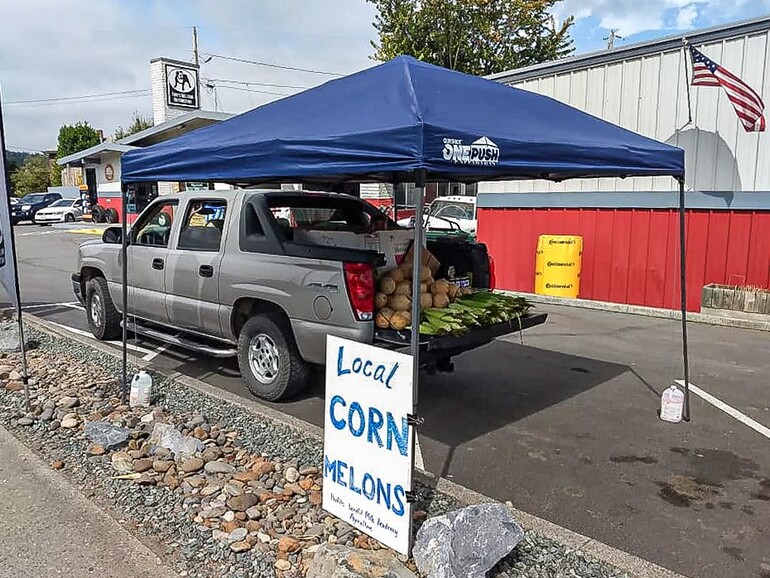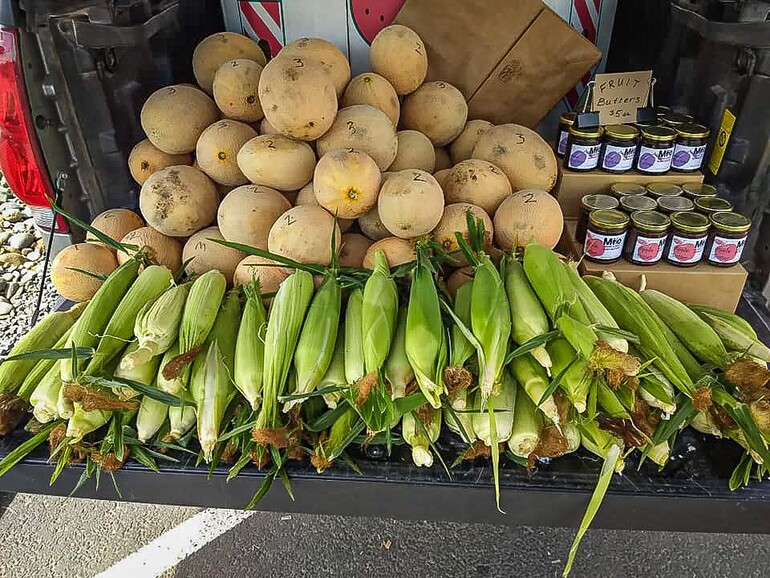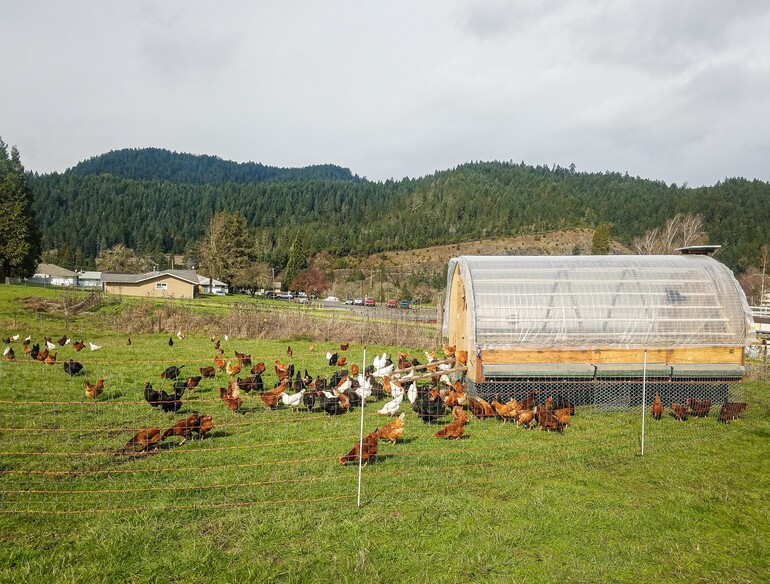It’s been a fabulous year for Milo Adventist Academy agriculture, a year filled with many successes as we continue building the program. A recent interview with farm manager Jeff Birth revealed some of the program's success stories over the past year.
Question: I understand the farm stand, Milo Market, has been open just over one year now. What successes have we seen there?
Answer: That’s one of the most exciting things! This last Alumni Weekend marked the one-year anniversary of opening Milo Market. We started with a very narrow clientele base and small awareness of our farm’s presence in the community, in addition to being very remote and “off the beaten path.” Even so, the Lord has blessed us with gross sales totaling $18,000 at our anniversary date. That’s more than we expected under the circumstances. It tells us that so much more is possible as word gets around.
Q: Have the successes from the farm stand been limited to income for the agriculture program?
A: Not at all, and this is the best part. As word of our market spreads, more and more community members are coming to see what the little red stand across the bridge is and to shop and purchase fresh, healthy, organic produce, grown in their “backyard.” Our school carries a bit of a stigma in the area that it is some type of reform school and that we’re somehow a little different. Through connections made at the farm stand, we’re making new and old friends and showing many who have never come across our bridge who we really are. We’re serving them.
Many stop here before driving into town. One customer drives about 20 miles from town about once a week to shop here. The general feedback from customers is, "We LOVE it! We’re so glad you’re here! We love that you’re teaching this new generation how to grow things and how to do useful work with their hands.”
One public school teacher who was in the area visiting family said she would be taking this inspiration back to her school in central California. We’re finding the farm and market helps us connect with and serve our community like nothing else.
Q: That sounds exciting! I hear our presence at the local farmers market has been more regular this season. What have you experienced there?
A: In a very similar way to the farm stand, we have noticed regulars that look for us and complain if we are not able to attend. Those in charge and the other vendors have raved about our participation and our produce, pleading for us to not stop with the summer outdoor market but to attend the indoor winter market as well. We have made connections at the farmers market with many who may not come to our campus. Often we are able to charge a bit more for crops there than we can get in our farm stand.
Q: Are those the two primary means of marketing you are using?
A: Yes, but this year we also experimented with “tailgating” produce like sweet corn, tomatoes, peppers and melons at the coast. Those are crops that don’t do as well in that climate. The first time we tried this, we nearly sold out and made over $500 in one afternoon. We see definite potential in this area for next year. That is more profitable than the farmers market usually is. We are planning on developing this a bit more next season.
There seems to also be interest in a “produce mobile” route to constituent churches in a radius around our area who would like to support our farm program. This would be reminiscent of the old “bookmobile” sales truck that used to come around to churches. It would be guaranteed sales perhaps ordered ahead of time from those who want to support the school but live too far to regularly come the farm stand.
In order to take full advantage of these two valuable marketing areas, we can see the need for a refrigerated van to maintain produce quality while “tailgating” or while sales stops are made over a long day or multiday route in hot weather. More capacity for produce and ability to keep it fresh will be key to these two marketing opportunities. We are currently trying to raise $15,000 to $20,000 to purchase a used refrigerated van.
Q: What successes have you observed in the people involved with the program over the past year?
A: Well, last year we graduated the first Market Farming Vocational Certificate students. The certificate they earn verifies that they completed over 500 hours of hands on experience and training. It’s very similar to an internship. It greatly increases their prospects of quickly getting a job in agriculture or in mission work or of starting their own farm, but honestly applies to so many areas.
A great example of these benefits and growth is in our juniors last year who completed the same vocational certificate program but will graduate this year. Four of them have taken skills learned on the farm — like work ethic, attention to details, teamwork, leadership, perseverance and follow through, among others — and this year have taken on leadership roles on campus where they are mentoring other students. Two are resident assistants and two are student chaplains. We are so proud of what God is doing with them and how He is using the farm to grow character in students.
At some sister schools the agriculture program is more or less a separate enterprise from the school, in some cases under separate ownership completely. This is largely due to the fact it’s just not profitable to employ students today. Students in the present age have very little if any hands-on experience in any form of manual labor and have not developed a work ethic. Worse yet, circumstances in most of their experiences have greatly diminished their ability to process and problem-solve or focus. This aspect of education is an acute and crucial need today but has a continual demand on productivity that has a huge impact on what is profitable and achievable from a production viewpoint.
A decisive success here is that Milo has maintained farm and school integration, where the focus is providing exactly what today’s students so desperately need and measuring productivity not merely in dollars but in time spent shaping and forming functional young adults that have an edge over their peers mentally, spiritually and manually in today’s society. It will take years to measure the profits there.
We also have experienced excitement in friends of the campus and ag program in the form of volunteering. People are being moved to help with time or funds as they are able. The farm really has a way of drawing people in and building family.
Along those lines, we are so grateful to have received loving donations for some much-needed equipment and tools over this last year. With those funds we have been able to purchase a better seeder, a flame weeder and a seedbed prep tool called a tilther, all of which improve efficiency. After some manufacturing delays, the students are quite eagerly anticipating the soon arrival of our long-awaited egg washing machine. We will be taking delivery of that about the first of December.
We have so much gratitude to our loving donors. Every step allows us to accomplish a bit more and maintain a bit more sanity.
Q: Wow, successes in people are definitely some of the most exciting valuable ones. I know each year you add some infrastructure to the program. Did you have any successes there this year?
A: We did. We had some unused and older equipment that, partially with volunteer help, we brought into operational condition and sold. That money along with some other various fundraisers was used to purchase two 14-by-100 “caterpillar tunnels,” which are low cost hoop houses or greenhouses. We were able to get free freight on two, and the total was only about $3,000 for the pair from Farmer’s Friend online. They were assembled at the market farm near our farm stand.
These have proved to be very productive and extremely practical. The cafeteria uses a lot of sweet peppers, which require a long season to fully ripen. Because of this need we planted both tunnels in yellow and red bell peppers. It was one of the most beautiful crops we’ve been blessed with of any type. The beauty of these tunnels is they can be placed right over the soil in an existing growing space, they can be assembled within a few hours, and they provide just the right type of protection for a wide variety of crops at a low outlay cost.
These will excel with greens production this winter in the market farm, while the greenhouses on the hill are in the winter mountain shadow for hours a day. They are so much more practical for soil-based vegetable production. We didn’t struggle with the disease issues in these like we always face in the big greenhouses — just happy healthy plants rooted in normal bioactive garden soil. We are hoping to add more of these as we are able to afford them over the next few seasons. We’d like to place early tomatoes in several this coming spring if we can.
We also have just completed a second, larger and improved mobile chicken coop for our pasture-raised laying hen operation. Our farm-fresh eggs are one of our top sellers. We approached a local farm store about purchasing some chicks this season to add to and eventually replace our aging flock. They gave us about 150 chicks at no charge that we have raised up. We plan on adding some more this coming season to keep production up.
Q: Jeff, I’m so grateful to hear of so many successes on the Milo farm this year — what a blessing. Praise God! I can see He is leading. How can we stay connected to what’s happening?
A: Well, the best way is to stop by for a visit. The second best is to watch the newsletters for updates, or drop in online and follow our new Milo Academy Farms Facebook and Instagram pages. We post updates and fun photos or videos as time allows us. The best way for you to support us is to pray that God’s will continue to be accomplished here and that He is steering His farm at Milo for the good of His kids and His school and our community. He’s the Lead Farmer!
Q: Jeff, thanks for sharing the blessings with us. We’ll be looking forward to seeing how God continues to grow kids and crops at Milo.





